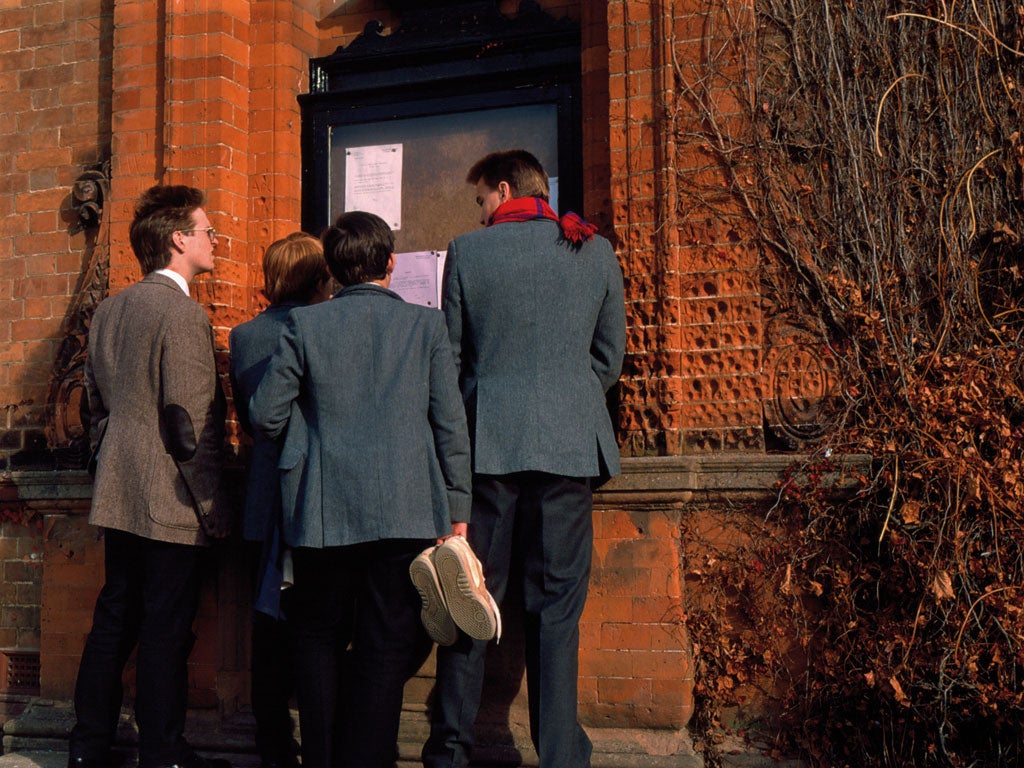£500m in three years: what you paid to send diplomats' children to school

Your support helps us to tell the story
From reproductive rights to climate change to Big Tech, The Independent is on the ground when the story is developing. Whether it's investigating the financials of Elon Musk's pro-Trump PAC or producing our latest documentary, 'The A Word', which shines a light on the American women fighting for reproductive rights, we know how important it is to parse out the facts from the messaging.
At such a critical moment in US history, we need reporters on the ground. Your donation allows us to keep sending journalists to speak to both sides of the story.
The Independent is trusted by Americans across the entire political spectrum. And unlike many other quality news outlets, we choose not to lock Americans out of our reporting and analysis with paywalls. We believe quality journalism should be available to everyone, paid for by those who can afford it.
Your support makes all the difference.The Government has spent more than half a billion pounds sending the children of diplomats and military personnel to Britain's most prestigious private schools over the last three years, new figures have revealed.
Ministers last year backed down on plans to scrap the allowance, which costs the taxpayer more than £21,000 per child, as part of public sector spending cuts. Instead they promised to cut the bill through "efficiencies". But research by the Bureau of Investigative Journalism has revealed that the cost of the perk has increased by nearly ten per cent since 2009 and last year stood at £203m across three departments.
The privilege, known as the Continuity of Education Allowance (CEA), exists to support children whose parents work for the government overseas. It covers the costs of schooling abroad and in the UK, but the majority, at least £99m each year, is spent on fees for expensive British boarding schools.
Public schools where the state has subsidised places include Marlborough College, Tony Blair's old school Fettes College and Roedean.
By far the biggest bill for private schooling comes from the Ministry of Defence (MoD), which funded more than £189m of school fees last year. All ranks are eligible for the perk but, because families have to make a contribution of a least 10 per cent, it is overwhelmingly taken up by officers.
Despite promises to make savings on the scheme the total bill has actually risen by £16m since 2008/9 – in part caused by new tax arrangements. It comes at the same time as the Army is in the process of axeing 20,000 posts because of budget cuts.
In the Foreign and Commonwealth Office (FCO), even staff who are living in the UK can receive the subsidy – if they are only in the country for between two and four years. The Department for International Development (Dfid) also provides the allowances.
Although none of the departments disclosed which private schools their staff used, some details have already been revealed in answers to parliamentary questions. Dfid said that 42 staff were given the allowance in 2011, which included paying course fees of £32,699 for Fettes, a boarding school in Edinburgh.
The Labour MP Gareth Thomas, who made the parliamentary inquiry, said he was concerned with a lack of transparency and surprised that costs of running the scheme had increased. "In times of austerity it's right that we review every area of spending," he said. "This is taxpayers' money. To what extent is the cost being monitored for these placements?
"I'm not against private schools, but it's perfectly legitimate that we have proper explanations for this."
The MoD said: "We tightened the criteria for CEA last year, resulting in a £10m saving." The Foreign Office said: "The FCO refunds standard term fees for boarding at UK schools up to a ceiling which is reviewed annually. Where parents opt to send their children to schools where the termly fees are above the ceiling of the boarding school allowance, they are required to meet the cost of the difference themselves."
Join our commenting forum
Join thought-provoking conversations, follow other Independent readers and see their replies
Comments